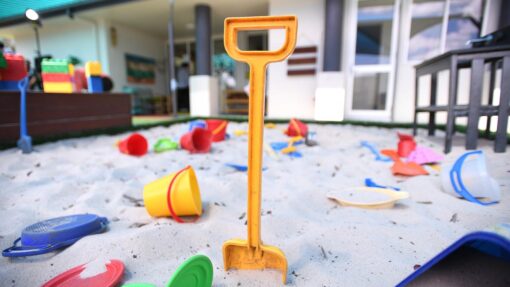Qld records another 22,069 virus cases
Marty Silk and Nick Gibbs |
Queenslanders are being urged to get a booster vaccine with hundreds of people with COVID-19 in hospital and almost 131,000 active cases in the state.
Another 22,069 COVID-19 infections emerged after 57,604 tests in the 24 hours to 6.30am on Wednesday.
Chief Health Officer John Gerrard said 525 people are being treated for COVID-19 in hospital wards, with another 30 in intensive care, eight of them on a ventilator.
He says clinical data shows those who are unvaccinated are nine times more likely to end up in hospital than those who have had a booster vaccine.
“We’ve had well over 100,000 documented cases and it’s likely to be a much larger number of true cases of COVID-19 in the community, and yet we’re still seeing these small numbers of patients in our intensive care units, and that’s because of the vaccination,” Dr Gerrard told reporters.
Health Minister Yvette D’Ath said there were no immediate plans for further restrictions ahead of a predicted peak in early February.
She said an indoor face-mask mandate, social distancing, hygiene awareness, and mandatory vaccination in some industries were helping keep the number of cases and hospitalisations manageable.
“We are comfortable with the numbers we’re seeing in hospitals right now,” Ms D’Ath said.
Queenslanders are being advised to work from home if possible but the minister clarified that only vulnerable people should limit their time outside home.
She said healthy, double-vaccinated people can attend pubs and other venues provided they wear masks, socially distance and exercise good hygiene.
“We’re not telling people to stay away from those places,” the minister said.
“The premier has continually talked about vulnerable people, our message is not that everyone should stay home right now.”
It comes as the government works through contingency plans for public transport services affected by staff needing to isolate.
Ms D’Ath said 3985 of the new cases emerged after home rapid antigen test results reported by individuals.
There are no plans to penalise or fine people for failing to report positive RAT results like NSW is proposing.
“How do you know someone’s got a positive test in a home kit, at home, and haven’t reported it?” she said.
“Are you going to start asking people in the household to start dobbing them in?”
Queensland is set to receive almost one million RATs next week, but Ms D’Ath said the delivery is unlikely to reduce queues at testing clinics as about half are point-of-care RATs.
Instead of taking a swab and sending it off to a lab, as with a PCR test, or simply handing people take-home RATs, she said, point-of-care tests require clinic staff to wait for a result, process it and then inform people.
“If we want to keep those lines moving at the same rate they are now, which we know is still leading to delays and long waits, we would have to put on extra staff,” Ms D’Ath said.
“I suspect every health minister right now is thinking, ‘I might be better off using the point-of-care tests internally for the public health system as opposed to on the frontline in the public testing lines’.”
AAP


